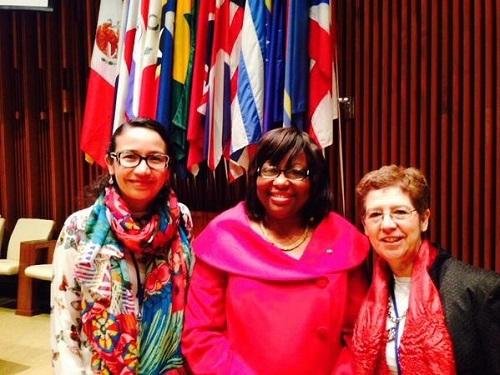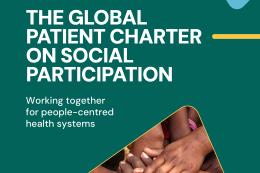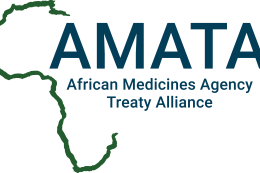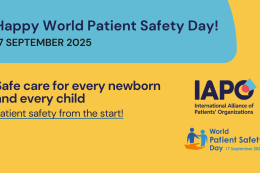Representing IAPO at WHO PAHO in the USA

Introduction
My role was to share experiences and spread the mission and vision IAPO has all over the world to support patient’s rights.
I think one of the most relevant issues was highlighted by Dr. Margaret Chan, Director-General of WHO: “We need to work together with social actors not named – civil society - in order to get prosperity, peace, partnership so we can sustain the planet and people”.
There were other issues too, such as elder people and their health. PAHO called to establish a system of long-term care in every country, ensuring everyone can grow older in an age friendly environment.
Health-related law
In other matters, very interesting strategies on health-related law were discussed; and their objectives were:
- Greater coordination between health authorities, legislative branches of government, other State authorities, and other stakeholders in forming, implementing or reviewing health-related law
- Legislative and regulatory measures to protect health and address the determinants of health
- Implementing the recommendations of the Governing Bodies of PAHO/WHO related to formulation and implementation of health-related law, taking into account national contexts and priorities.
The Principles and values of the Strategy were decided and the main ones are: respect of the sovereignty of each Member State; promotion, respect and protection of human rights; solidarity and non-discrimination in health; equity; social, economic, environmental and behavioural determinants that impact on health; integration of values such as gender, ethnic or racial equality.
We also read out an IAPO statement about Health Related Law on 30 September.
Progress in the region
I think some of the relevant progress reported was the incorporation of Health Technology Assessment into health systems; this was a big discussion since there are several countries whose developments are not strong enough or well suited to integrate health technology assessment at the moment.
There was recognition that members must embrace innovation. To achieve universal health coverage it will be necessary in the short, medium and long term to create and develop a capacity for innovation in the field of research and development; to improve, promote and accelerate the transfer of technologies; encourage and support the implementation and management of intellectual property; and to improve the dissemination of all health products and medical devices and ensure their access.
I had the opportunity to interact with many delegates from different countries and I realized the great interest shown by them with respect to the role that an organization like IAPO can do for patients, and the interesting options that can occur in this collaboration with the local health authorities in addition.
Working together
Lastly, I would like to thank all IAPO’s support and all the confidence you have placed in me by choosing me for this mission. I attended all sessions; took notes of each vote, dialog or intervention. I participated in the working lunches and I shared with the delegates from many countries. I talked to everyone about the work of IAPO); its mission and vision and how patients benefit in learning about their rights and duties.
We still have a long way to go and the challenges are increasing; new diseases, climate change, a growing adult population, and more, but we can face them united and working close to governments and international agencies such as WHO and PAHO.
I am confident that in the near future, the work of IAPO will extend throughout our region to help collect and bring together many more patients that today are alone in their battles.



